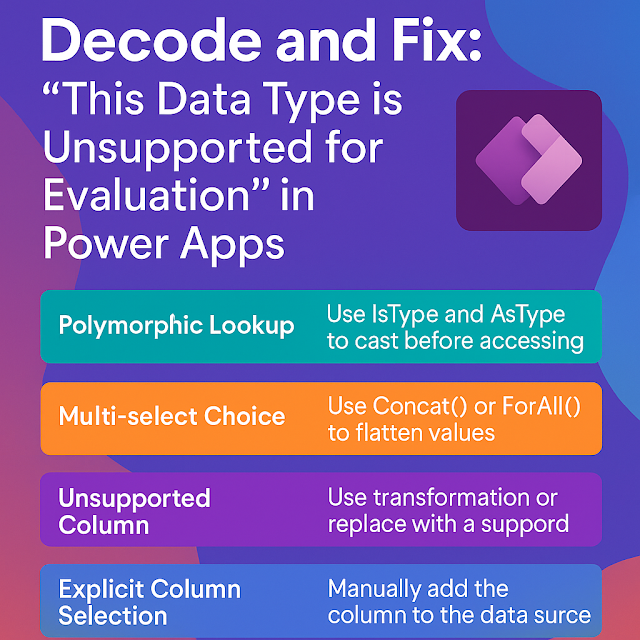Dynamics 365 Field Service : Modify default Field Service settings
Default Field Service Settings in Dynamics 365 Field Service and their purpose:
General
Sets up core components like territories, tax codes, products, and price lists. These form the foundation for field service operations.
Copilot Settings
Used to enable and configure AI-powered summaries for work orders inside the application, helping users quickly understand key details.
Work Orders
Defines everything related to work orders—like types, sub-statuses, incident templates, service tasks, and inspection templates.
Service Delivery
Controls service-related settings such as entitlements and agreement sub-statuses, ensuring clear rules for service delivery and coverage.
Purchase
Manages purchase order configurations, helping streamline procurement workflows within field service.
Inventory
Handles inventory return processes through settings for RMA (Return Merchandise Authorization) and RTV (Return to Vendor) sub-statuses.
Knowledge Management
Enables setup for knowledge base articles and FAQs, helping technicians access helpful information while on-site.
Microsoft Teams Integration
Allows seamless integration with Microsoft Teams so technicians and back-office staff can collaborate without switching apps.
IoT
Connects Field Service to IoT devices, enabling real-time monitoring and automated actions based on device status.
Geofencing
Sets up geographic zones and triggers events when technicians enter or leave defined areas, improving location-based decision-making.
Analytics & Insights
Activates dashboards and reports such as predictive work durations and historical analytics to monitor performance and trends.
Geolocation
Manages GPS-based features and boundary settings, helping track technician movements and enforce location constraints.
Field Service Health
Provides insights into the overall system health and performance of background jobs related to field service processes.
Asset Properties
Configures additional details for customer assets like custom property fields, supporting advanced asset tracking and service history.













Comments
Post a Comment